
Nkhata Bay: The Jewel of Lake Malawi
Nkhata Bay, nestled on the northern shores of Lake Malawi, is a vibrant and charming town that captures the essence of Malawian culture and the natural beauty of Africa's third-largest lake. Known for its clear blue waters, sandy beaches, and lush green hills, Nkhata Bay offers a unique blend of relaxation and adventure, making it a must-visit destination for travelers seeking an authentic Malawian experience. The heart of Nkhata Bay is its bustling market, where you can immerse yourself in the local way of life. Here, vendors sell fresh produce, handmade crafts, and colorful fabrics. The town's friendly residents are always eager to share stories and offer a warm welcome to visitors. As you stroll through the streets, the vibrant sounds of local music and laughter fill the air, creating an atmosphere that is both lively and inviting. For those who love water activities, the bay is a paradise. Snorkeling and diving in the crystal-clear waters reveal a stunning underwater world filled with diverse fish species, including the famous cichlids of Lake Malawi. Kayaking along the shoreline allows you to explore hidden coves and secluded beaches, while a boat trip can take you to nearby islands for a day of exploration. For the more adventurous, hiking the surrounding hills offers breathtaking views of the lake and the chance to spot local wildlife. Accommodation options in Nkhata Bay range from budget-friendly lodges to more luxurious resorts, catering to all types of travelers. Many of these establishments are situated right on the waterfront, providing stunning views of the lake and easy access to the beach. Dining options are equally varied, with restaurants offering everything from traditional Malawian dishes to international cuisine, often featuring fresh fish straight from the lake. Nkhata Bay is not just a place to visit; it's a place to experience. Whether you're looking to unwind on a tranquil beach, engage with the local culture, or embark on an adventure, this charming town has something for everyone. Its unique combination of natural beauty, cultural richness, and warm hospitality makes Nkhata Bay a true gem in Malawi's crown.
Local tips in Nkhata Bay
- Visit the local market early in the morning for the freshest produce and best bargains.
- Bring your own snorkeling gear to explore the underwater life at your leisure.
- Consider staying at a waterfront lodge for easy access to the lake and stunning views.
- Try the local dish, chambo fish, which is freshly caught from Lake Malawi.
- Take a guided hike to the nearby hills for panoramic views and a chance to see local wildlife.
Nkhata Bay: The Jewel of Lake Malawi
Nkhata Bay, nestled on the northern shores of Lake Malawi, is a vibrant and charming town that captures the essence of Malawian culture and the natural beauty of Africa's third-largest lake. Known for its clear blue waters, sandy beaches, and lush green hills, Nkhata Bay offers a unique blend of relaxation and adventure, making it a must-visit destination for travelers seeking an authentic Malawian experience. The heart of Nkhata Bay is its bustling market, where you can immerse yourself in the local way of life. Here, vendors sell fresh produce, handmade crafts, and colorful fabrics. The town's friendly residents are always eager to share stories and offer a warm welcome to visitors. As you stroll through the streets, the vibrant sounds of local music and laughter fill the air, creating an atmosphere that is both lively and inviting. For those who love water activities, the bay is a paradise. Snorkeling and diving in the crystal-clear waters reveal a stunning underwater world filled with diverse fish species, including the famous cichlids of Lake Malawi. Kayaking along the shoreline allows you to explore hidden coves and secluded beaches, while a boat trip can take you to nearby islands for a day of exploration. For the more adventurous, hiking the surrounding hills offers breathtaking views of the lake and the chance to spot local wildlife. Accommodation options in Nkhata Bay range from budget-friendly lodges to more luxurious resorts, catering to all types of travelers. Many of these establishments are situated right on the waterfront, providing stunning views of the lake and easy access to the beach. Dining options are equally varied, with restaurants offering everything from traditional Malawian dishes to international cuisine, often featuring fresh fish straight from the lake. Nkhata Bay is not just a place to visit; it's a place to experience. Whether you're looking to unwind on a tranquil beach, engage with the local culture, or embark on an adventure, this charming town has something for everyone. Its unique combination of natural beauty, cultural richness, and warm hospitality makes Nkhata Bay a true gem in Malawi's crown.
When is the best time to go to Nkhata Bay?
Iconic landmarks you can’t miss
Mayoka Village Lodge
Experience the serene beauty of Lake Malawi at Mayoka Village Lodge, where relaxation meets adventure in a stunning natural setting.

Butterfly Space Non Profit Eco Lodge
Discover the charm of Nkhata Bay at Butterfly Space Non Profit Eco Lodge, an eco-friendly haven for adventure seekers and community lovers.
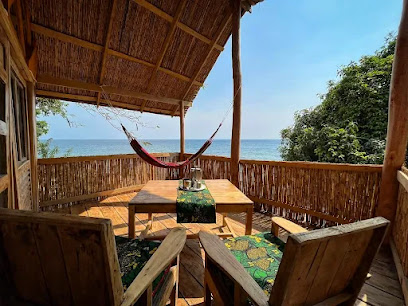
Njaya Lodge
Explore the beauty of Lake Malawi from the serene Njaya Lodge at Chikale Beach, where relaxation meets adventure in Nkhata Bay.
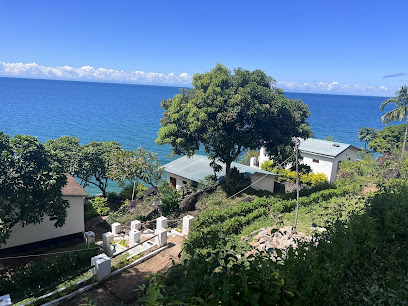
Kande Beach
Discover the serene beauty of Kande Beach, where golden sands meet the azure waters of Lake Malawi, offering a perfect escape for relaxation and adventure.
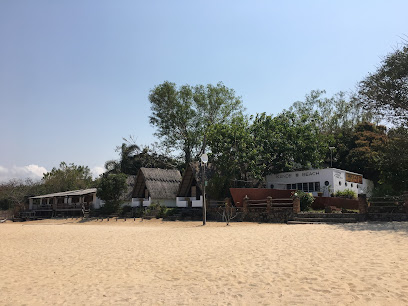
Kachere Kastle
Experience the enchanting beauty of Kachere Kastle, a lakeside hotel that combines comfort with adventure in the heart of Malawi.

Soul Rebel Lodge & Backpackers
Experience the vibrant atmosphere of Soul Rebel Lodge & Backpackers in Nkhata Bay, where adventure meets relaxation by the stunning shores of Lake Malawi.
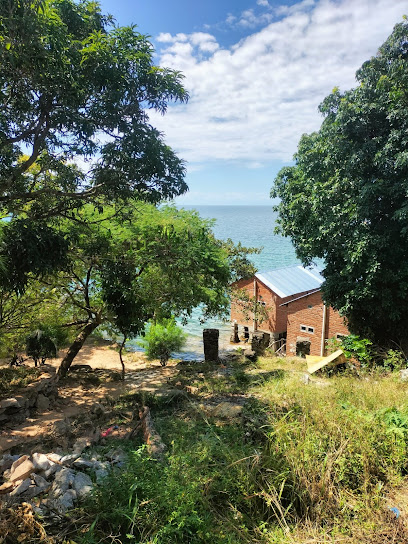
Aqua Africa
Experience the thrill of scuba diving in Nkhata Bay at Aqua Africa, where adventure meets the beauty of Lake Malawi's underwater paradise.
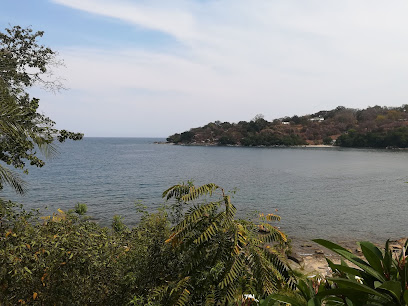
Crestview Guest House Restaurant and Take Away
Explore the flavors of Malawi at Crestview Guest House Restaurant, where local ingredients meet delightful culinary creations in Nkhata Bay.
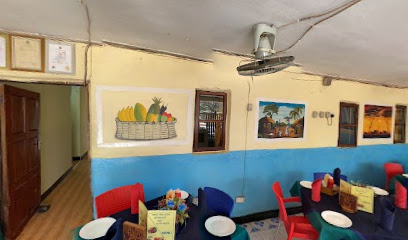
Ndau Lodge
Discover tranquility and adventure at Ndau Lodge, a serene haven on the shores of Lake Malawi in Nkhata Bay, perfect for relaxation and exploration.
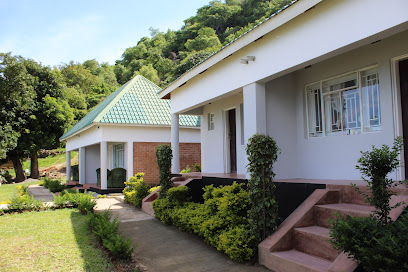
Chikale beach
Discover the serene beauty of Chikale Beach, a breathtaking tourist attraction on Lake Malawi, perfect for relaxation, adventure, and cultural experiences.
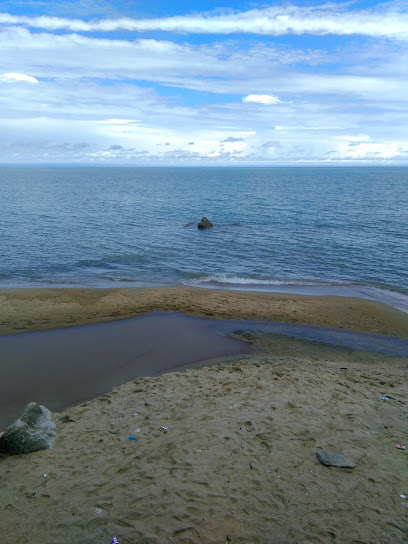
Mzuzu Clock Tower
Explore the iconic Mzuzu Clock Tower, a historical landmark showcasing the rich culture and vibrant life of Malawi's third largest city.
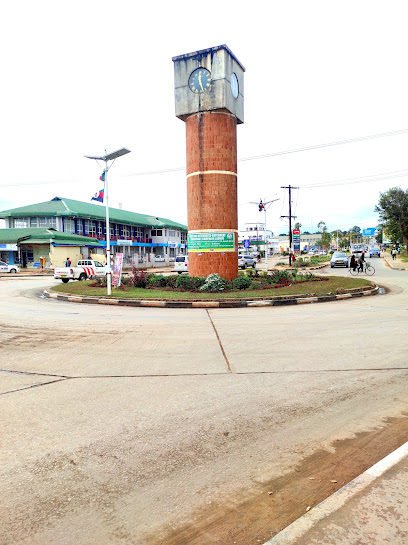
Ilala Ferry Port
Discover Nkhata Bay's vibrant culture and beautiful landscapes at Ilala Ferry Port, the main gateway to Lake Malawi's enchanting adventures.
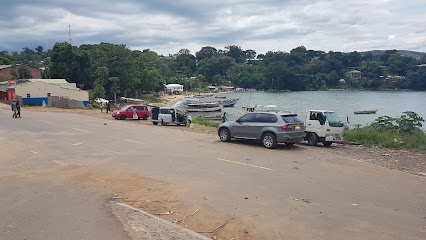
Mzuzu Dam
Experience the serene beauty of Mzuzu Dam, a tranquil oasis in Malawi perfect for relaxation, photography, and connecting with nature.
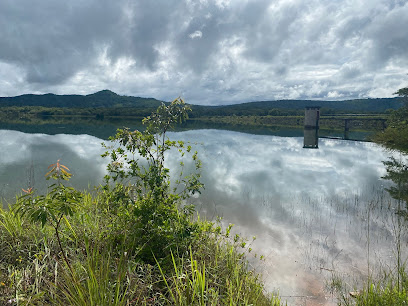
Sahara Leisures - Restaurant & Bar
Explore the flavors of Malawi at Sahara Leisures, a top restaurant and bar in Nkhata Bay serving fresh, local cuisine and refreshing drinks in a vibrant setting.
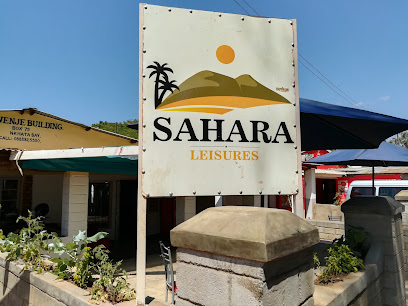
Vizara Rubber Factory
Discover the unique production process of foam rubber at Vizara Rubber Factory in Chibaka, a must-visit destination for curious travelers and industry enthusiasts.

Unmissable attractions to see
Elephant Rock
Explore the stunning Elephant Rock in Malawi, a natural wonder that combines breathtaking views with rich biodiversity and local culture.
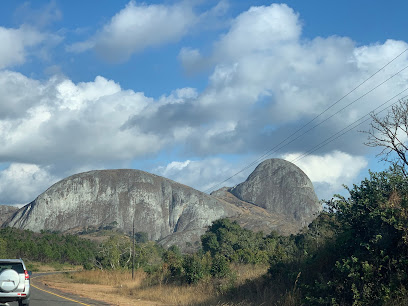
Queens Park
Discover the serene beauty of Queens Park in Mzuzu, a perfect escape for relaxation, nature walks, and family gatherings amidst lush landscapes.
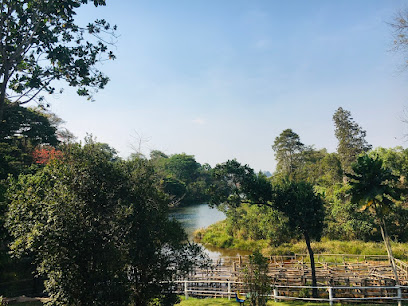
Vizara Rubber Plantation
Discover the beauty and agricultural significance of Vizara Rubber Plantation, a lush tourist attraction in Nkhata Bay, Malawi.
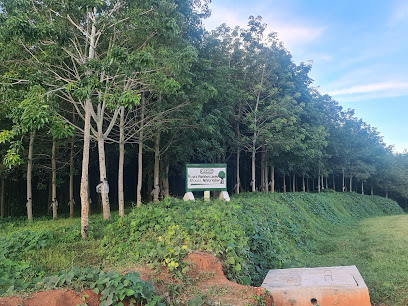
Kavuzi Waterfall
Experience the breathtaking beauty and tranquility of Kavuzi Waterfall, a must-visit hiking area in Malawi's lush landscapes.
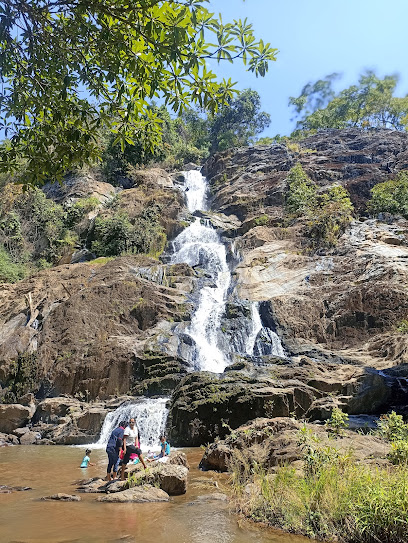
Mzuzu Dam
Experience the serene beauty of Mzuzu Dam, a tranquil escape in Malawi perfect for adventure seekers and nature lovers alike.
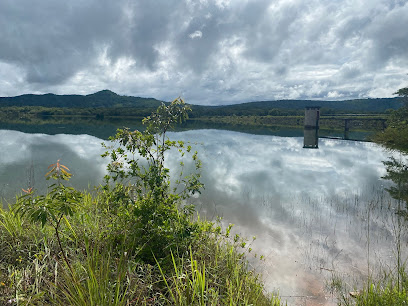
Chinungu Mountain
Explore Chinungu Mountain's breathtaking views and diverse wildlife, a perfect destination for hikers and nature lovers in Malawi.

Kawiya River
Explore the serene Kawiya River in Chintheche, a natural wonder offering breathtaking views, diverse wildlife, and unforgettable adventures.
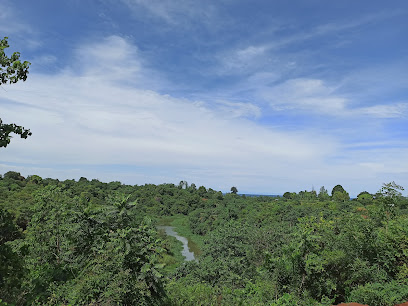
Kantchindu Cottage
Discover the tranquil beauty of Kantchindu Cottage on Lake Malawi, where adventure meets relaxation in a vibrant cultural setting.
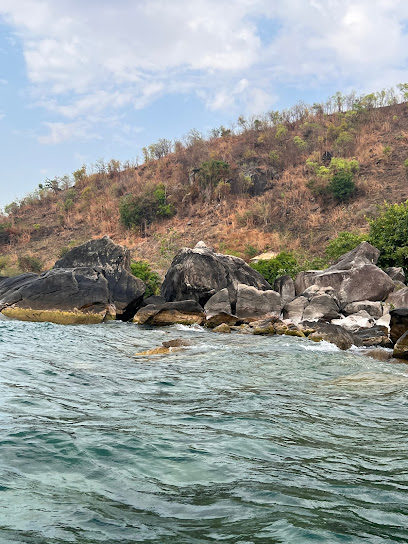
Kamwala
Experience the breathtaking beauty and vibrant culture of Kamwala, a must-visit tourist attraction in Malawi, where nature meets tradition.
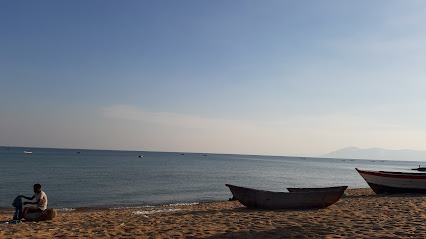
Kaya Gardens
Kaya Gardens in Mzuzu: A serene escape filled with vibrant flora, perfect for relaxation and exploration amidst nature's beauty.
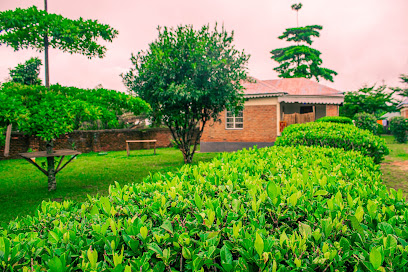
Ndunda beach
Experience the serene beauty and vibrant culture at Ndunda Beach, a hidden gem on Likoma Island, perfect for relaxation and adventure.
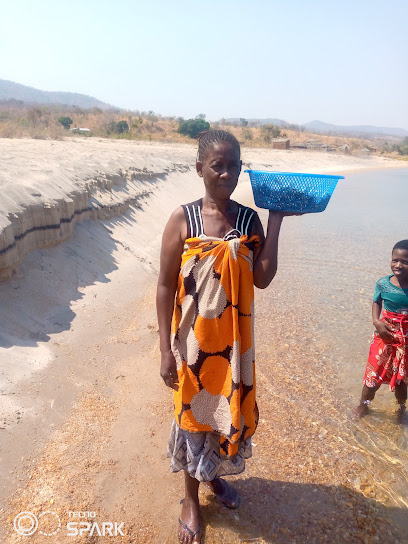
Thambani Beach
Experience the tranquil beauty of Thambani Beach, a serene campground in Nkhata Bay, Malawi, perfect for relaxation and fishing adventures.
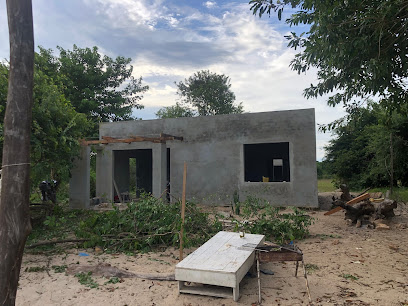
EventNub Garden
Explore the serene beauty of EventNub Garden in Nkhata Bay, where nature meets tranquility in a stunning park and event venue.
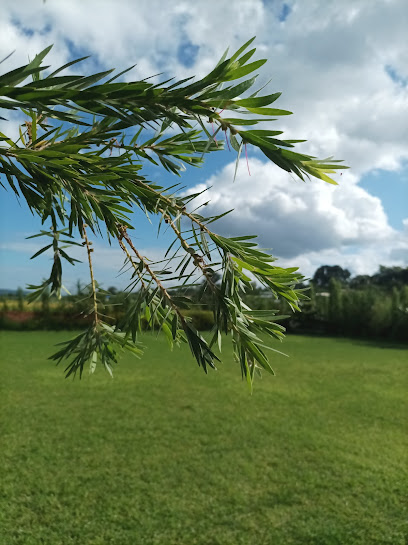
Chitewe mountain
Discover the natural beauty and adventure at Chitewe Mountain, a stunning tourist attraction in Malawi, perfect for hiking, photography, and cultural experiences.
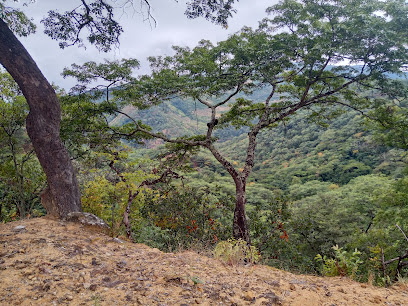
Mlowe view
Discover the breathtaking beauty of Mlowe View in Malawi, a serene tourist attraction perfect for nature lovers and photography enthusiasts.
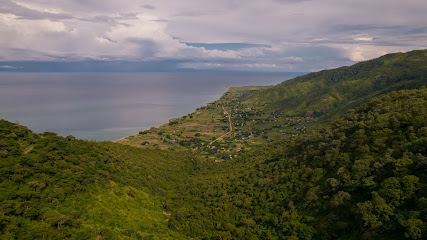
Essential places to dine
Butterfly Space Non Profit Eco Lodge
Experience tranquility at Butterfly Space Non Profit Eco Lodge – an eco-friendly haven by Lake Malawi offering great food, outdoor adventures, and community engagement.
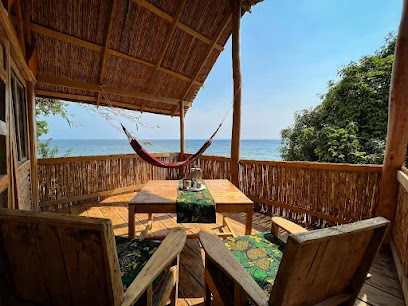
Macondo Camp
Experience the perfect blend of Italian cuisine and cozy lodging at Macondo Camp in Mzuzu - your family-friendly getaway!
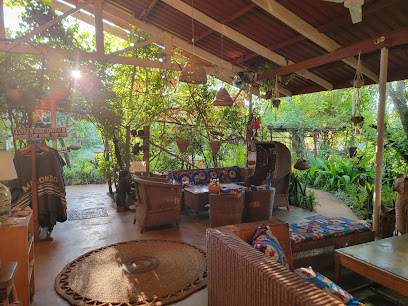
A1
Experience authentic Indian cuisine at A1 in Mzuzu, where every dish is a celebration of flavor and tradition.
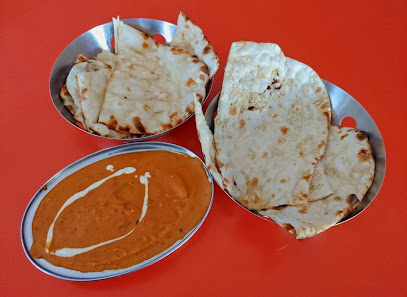
One Love
Experience authentic Malawian cuisine at One Love, where local flavors meet stunning lake views in Nkhata Bay.
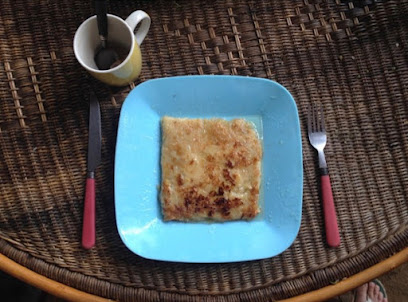
Kips Express
Discover the flavors of Malawi at Kips Express in Mzuzu - where local cuisine meets warm hospitality.
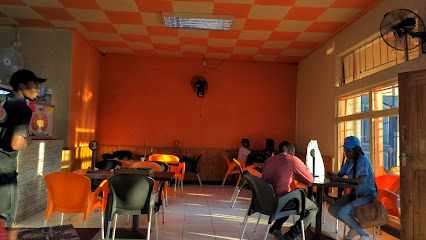
Crestview Guest House Restaurant and Take Away
Experience authentic Malawian cuisine at Crestview Guest House Restaurant in Nkhata Bay – where every dish tells a story.
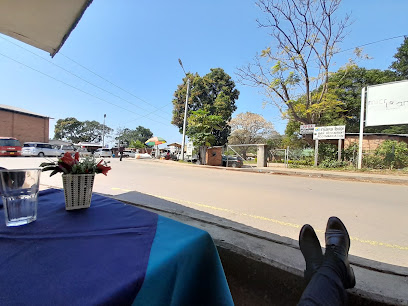
Manjolo Village
Experience the vibrant culinary scene at Manjolo Village in Mzuzu – where Malawian flavors meet warm hospitality.

Kwithu Kitchen Cafè
Experience the rich flavors of Malawi at Kwithu Kitchen Cafè in Mzuzu - a culinary haven for every traveler.
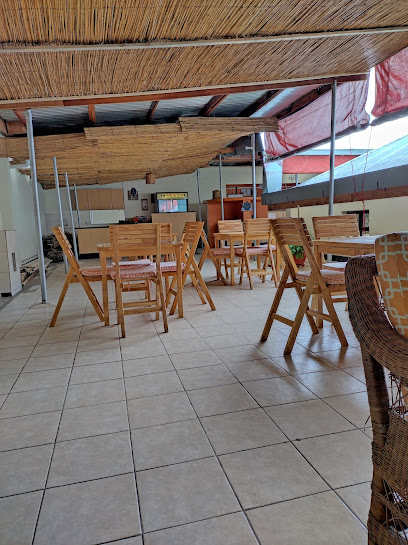
Chef's Pride Restaurant And Country Accommodation
Experience authentic local cuisine at Chef's Pride Restaurant & Country Accommodation – where flavor meets hospitality in a serene setting.
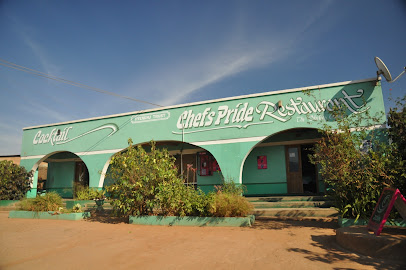
Midland fast food
Experience delicious fast food with local flavors at Midland Fast Food in Mzuzu – perfect for every tourist's palate.
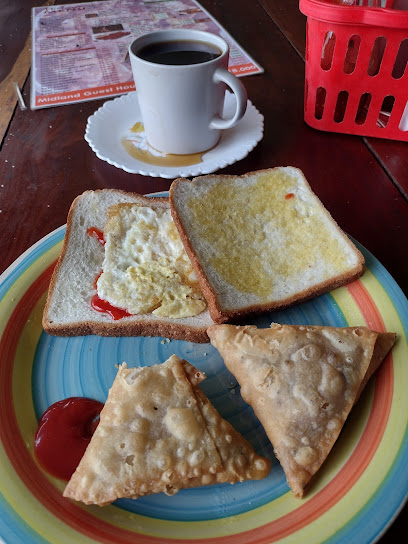
Soul Kitchen
Discover Soul Kitchen in Mzuzu – A delightful restaurant renowned for its BBQ chicken and authentic Malawian flavors.
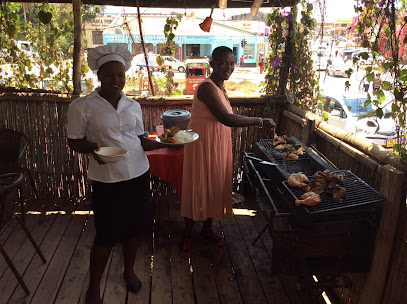
Kwidu LUXURY COTTAGE
Discover tranquility and luxury at Kwidu Luxury Cottage in Chintheche - your perfect escape into nature's embrace.
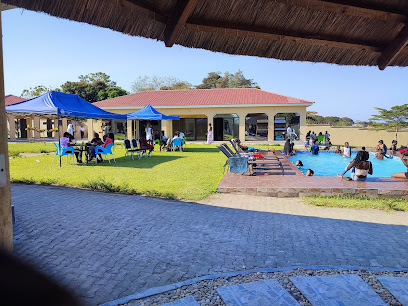
Club Love MW
Discover the unique blend of grilling delights and vibrant nightlife at Club Love MW in Mzuzu - where flavor meets culture.
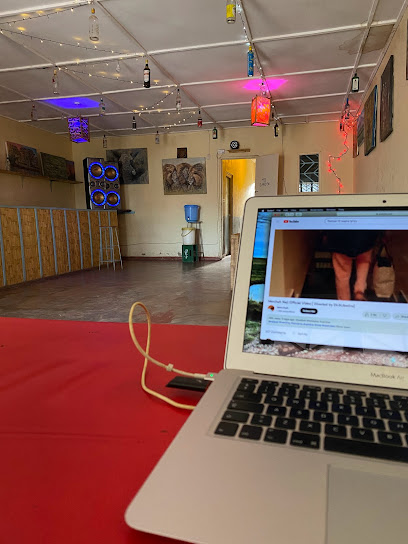
Pizza inn
Discover the best pizza experience in Mzuzu at Pizza Inn - where tradition meets taste with every slice!
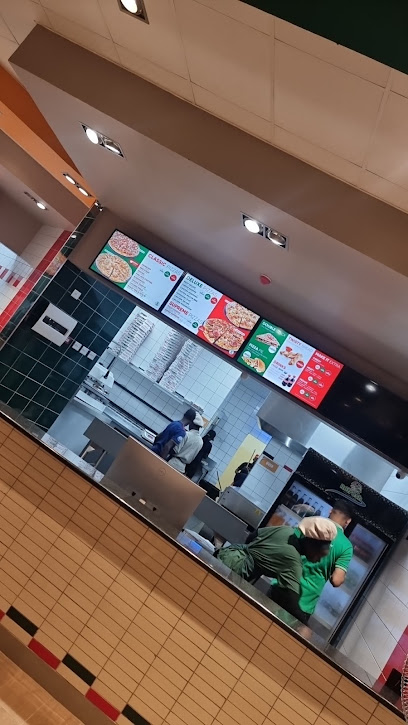
Mawala Bar and Lounge
Experience the essence of Malawian hospitality at Mawala Bar and Lounge, where stunning lake views meet delicious cuisine.
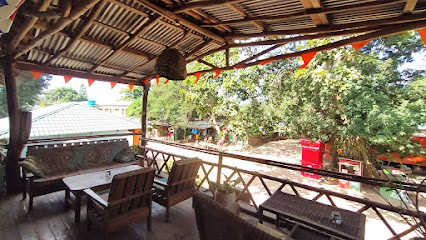
Markets, malls and hidden boutiques
JONAZI TRADING CENTER , BAR & RESTHOUSE
Explore the rich culture of Malawi at Jonazi Trading Center, where unique gifts and local cuisine await in Mzuzu.
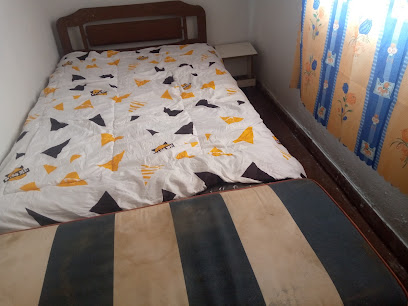
Beaura's Dress Maker and Tailor
Discover the vibrant artistry of Malawian fashion at Beaura's Dress Maker and Tailor in Nkhata Bay, where custom styles meet cultural richness.
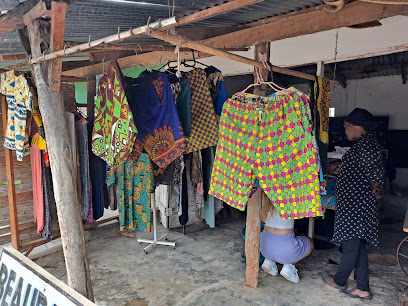
Local Market
Explore the lively Local Market in Nkhata Bay, where culture, cuisine, and crafts come together in a vibrant shopping experience.

Vikalathiwe Kapito
Discover authentic Malawian crafts at Vikalathiwe Kapito, a gift shop in Nkhata Bay filled with local treasures and cultural charm.
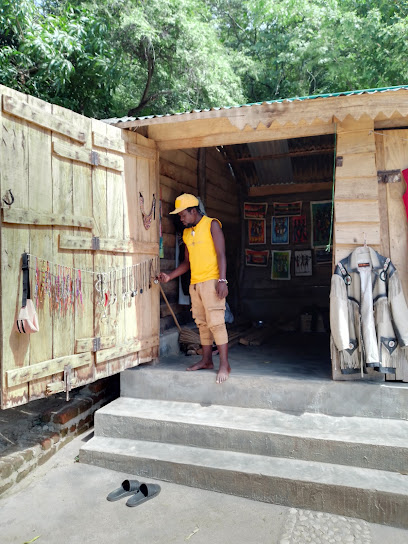
Mzenga Trading Centre
Explore the Mzenga Trading Centre in Nkhata Bay – your gateway to authentic Malawian home goods and cultural treasures.

Chikale Carvers Association
Discover the vibrant artistry of Malawi at Chikale Carvers Association, where traditional craftsmanship meets contemporary creativity.
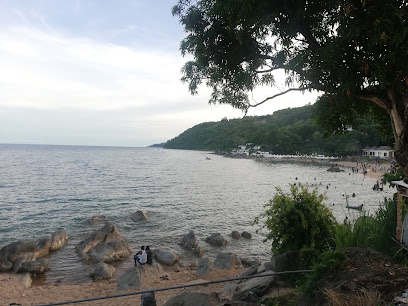
Q-BAR & BAYSIDE LIQUOR
Explore the vibrant lakeside charm of Nkhata Bay at Q-Bar & Bayside Liquor, your go-to spot for local and international beverages.
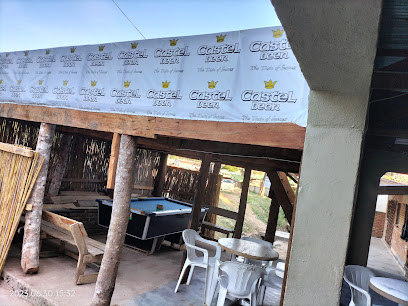
Beaura's Shop
Experience custom tailoring at Beaura's Shop in Nkhata Bay, where quality craftsmanship meets personalized service for your unique style.
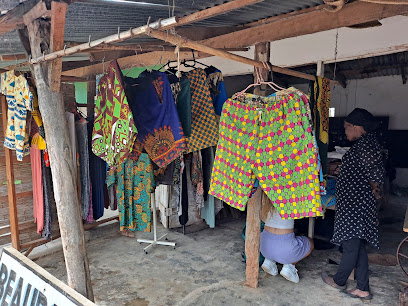
RIGHT CHOICE SUPERMARKET
Discover a vibrant shopping experience at Right Choice Supermarket in Nkhata Bay, offering local and international products for every traveler.

Vika's Art Gallery
Discover the vibrant artistry of Malawi at Vika's Art Gallery, where local craftsmanship meets unique gifts in the heart of Chikale.

Smokies Bar~B~q
Discover the mouthwatering flavors of Smokies Bar~B~q, a grill store in Nkhata Bay known for its delicious barbecue and vibrant atmosphere.
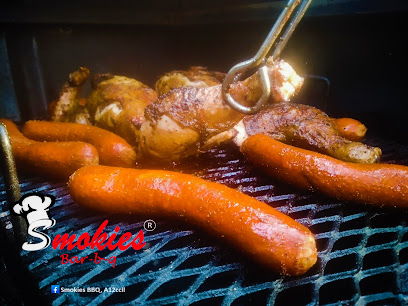
Matete Shop
Explore Matete Shop in Mzuzu for fresh local produce and a taste of Malawian culture in a welcoming grocery store.

Handicraft shops
Discover the unique handicraft shops of Nkhata Bay, Malawi, where local artisans showcase their vibrant creations and cultural heritage.
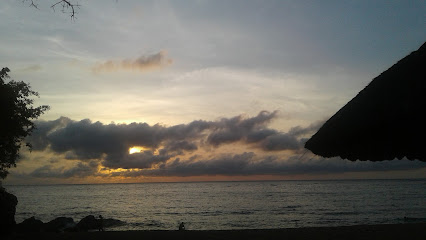
Anyasalima
Explore Anyasalima in Nkhata Bay for an authentic taste of local culture and fresh Malawian produce, perfect for culinary adventures.

Uncle Bob NanKing Fisher
Explore the vibrant culture and delicious flavors at Uncle Bob NanKing Fisher Market in Nkhata Bay, Malawi - a must-visit for every traveler.

Essential bars & hidden hideouts
Butterfly Space Non Profit Eco Lodge
Embrace nature and community at Butterfly Space Non Profit Eco Lodge, a serene retreat in Nkhata Bay, Malawi, perfect for eco-conscious travelers.
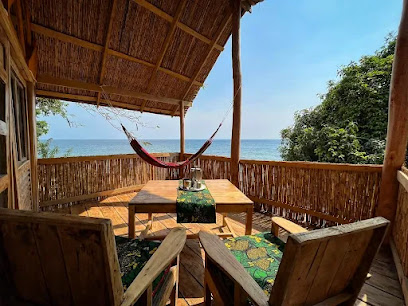
One Love
Experience the culinary delights of One Love in Nkhata Bay, where local flavors and a cozy atmosphere come together for an unforgettable meal.
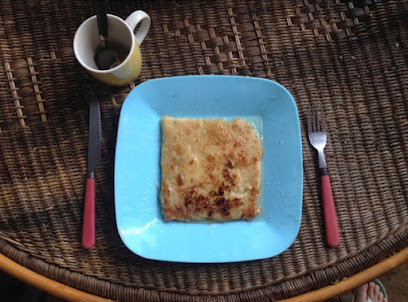
Crestview Guest House Restaurant and Take Away
Experience authentic Malawian cuisine at Crestview Guest House Restaurant, where delicious meals meet stunning views in Nkhata Bay.
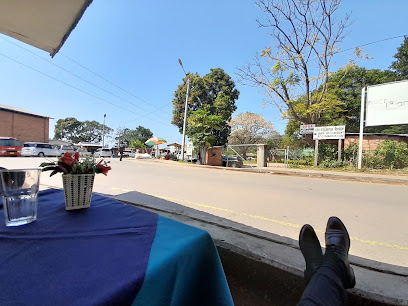
Bay View - Bar & Night Club
Experience the vibrant nightlife at Bay View, Nkhata Bay’s premier bar and night club with stunning lake views and unforgettable atmosphere.
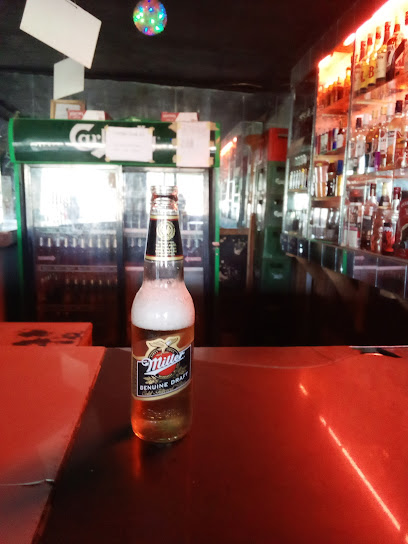
Mawala Bar and Lounge
Discover Mawala Bar and Lounge in Nkhata Bay, where local flavors meet a vibrant atmosphere and stunning lake views.
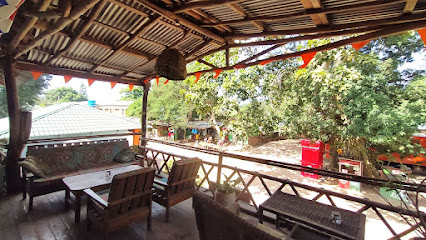
Aunt Luse Restaurant
Discover the authentic tastes of Malawi at Aunt Luse Restaurant in Nkhata Bay, where every dish tells a story of local flavors and warm hospitality.
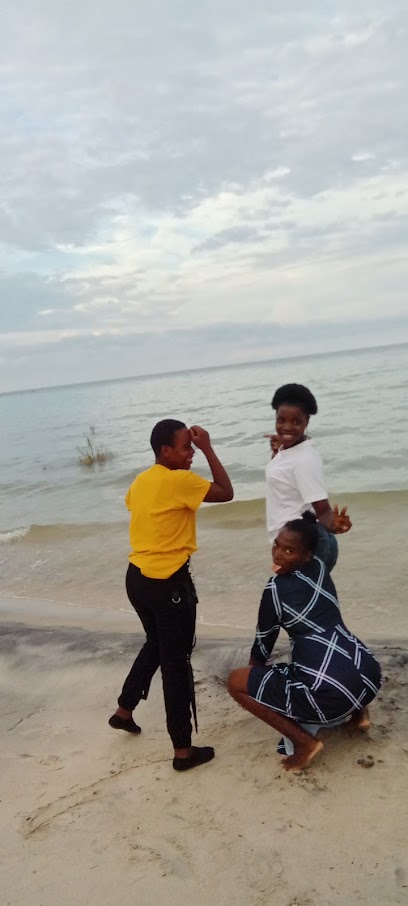
Sahara Leisures - Restaurant & Bar
Discover the vibrant flavors of Malawi at Sahara Leisures, a top-rated restaurant and bar in Nkhata Bay, perfect for relaxation and good times.
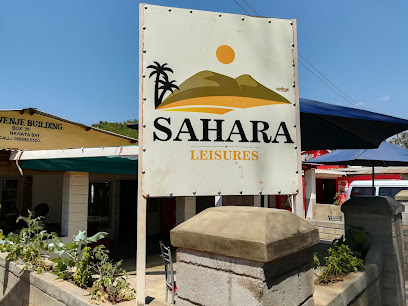
Chifundo's bar
Experience the vibrant culture and stunning views at Chifundo's Bar, the perfect lakeside retreat in Nkhata Bay.
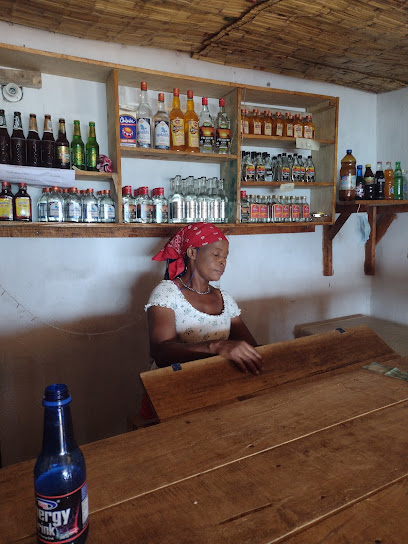
Hotspot Cafe
Discover the vibrant flavors of Malawi at Hotspot Cafe in Nkhata Bay, a delightful restaurant with a warm ambiance and delicious local cuisine.
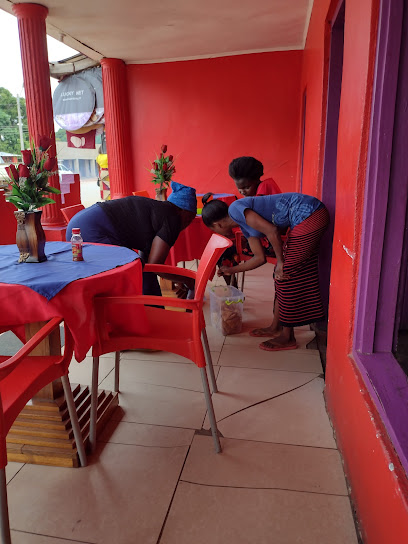
Bush House Bar
Discover the vibrant atmosphere of Bush House Bar in Nkhata Bay, where local cuisine meets the charm of Malawian hospitality.
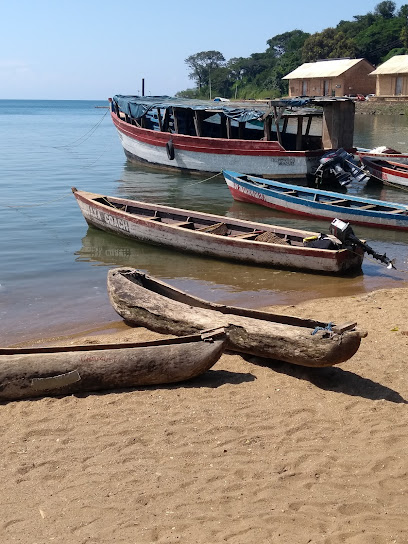
Q-BAR & BAYSIDE LIQUOR
Explore the vibrant atmosphere and exceptional drink selection at Q-BAR & BAYSIDE LIQUOR, the go-to spot for relaxation in Nkhata Bay.
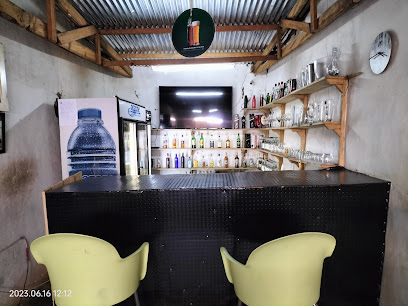
Tiku Manepo - Local Restaurant
Discover the authentic taste of Africa at Tiku Manepo - a culinary gem in Nkhata Bay serving delicious local dishes.

Baby Elephant Liquor
Discover the lively spirit of Nkhata Bay at Baby Elephant Liquor, where drinks and friendly vibes come together for an unforgettable experience.
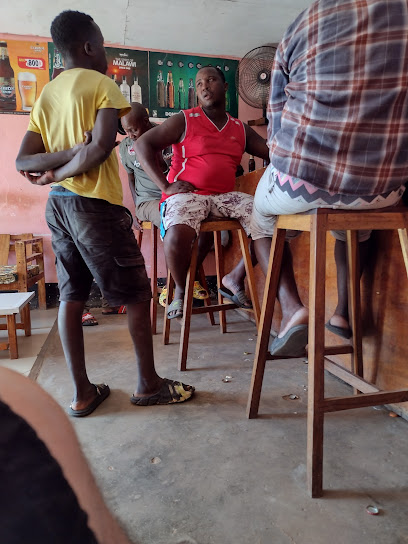
Smokies Bar~B~q
Experience the authentic taste of Malawi at Smokies Bar~B~q, where every dish is a celebration of flavor and culture.
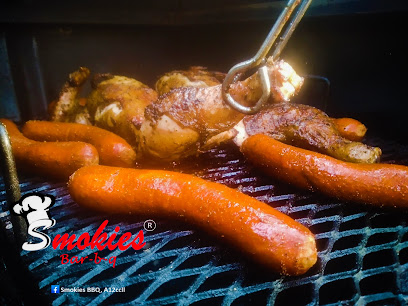
Smokies BBQ At The Bay
Experience the authentic flavors of Malawi at Smokies BBQ At The Bay, where mouthwatering BBQ dishes meet breathtaking views of Nkhata Bay.
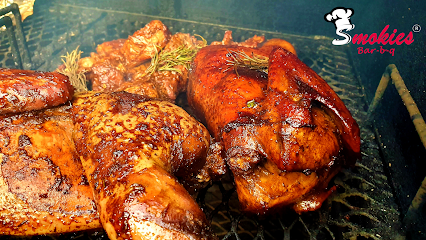
Travel experiences inspired by this city
Explore more travel diariesLocal Phrases
-
- HelloMoni
[moh-nee] - GoodbyeTionana
[tee-oh-nah-nah] - YesEya
[eh-yah] - NoAyii
[ah-yee] - Please/You're welcomeZikomo
[zee-koh-moh] - Thank youZikomo kwambiri
[zee-koh-moh kwahm-bee-ree] - Excuse me/SorryPepani
[peh-pah-nee] - How are you?Muli bwanji?
[moo-lee bwan-jee] - Fine. And you?Bwino. Koma inu?
[bwee-noh. koh-mah ee-noo] - Do you speak English?Mukudziwa kuyankhula Chingerezi?
[moo-koo-dzee-wah koo-yahn-koo-lah chin-geh-reh-zee] - I don't understandSindikudziwa
[seen-dee-koo-dzee-wah]
- HelloMoni
-
- I'd like to see the menu, pleaseNdikufuna kuona menu, chonde
[ndee-koo-foo-nah koo-oh-nah meh-noo chohn-deh] - I don't eat meatSindikudya nyama
[seen-dee-koo-dee-yah nyah-mah] - Cheers!Zaumwana!
[zow-mwah-nah] - I would like to pay, pleaseNdikufuna kulipira, chonde
[ndee-koo-foo-nah koo-lee-pee-rah chohn-deh]
- I'd like to see the menu, pleaseNdikufuna kuona menu, chonde
-
- Help!Chitani chomene!
[chee-tah-nee choh-meh-neh] - Go away!Pitani!
[pee-tah-nee] - Call the Police!Pangani wapolisi!
[pahn-gah-nee wah-poh-lee-see] - Call a doctor!Pangani dokotala!
[pahn-gah-nee doh-koh-tah-lah] - I'm lostNdalama ndili pa nkhondo
[ndah-lah-mah ndee-lee pah n-khon-doh] - I'm illNdimakwiya
[ndee-mah-kwee-yah]
- Help!Chitani chomene!
-
- I'd like to buy...Ndikufuna kugula...
[ndee-koo-foo-nah koo-goo-lah] - I'm just lookingNdikufuna kuyang'ana
[ndee-koo-foo-nah koo-yahn-gah-nah] - How much is it?Ndalama zake ndi zingati?
[ndah-lah-mah zah-kay ndee zing-ah-tee] - That's too expensiveIzi ndi zopusa kwambiri
[ee-zee ndee zoh-poo-sah kwahm-bee-ree] - Can you lower the price?Munganditengebe?
[moon-gahn-dee-ten-geh-beh]
- I'd like to buy...Ndikufuna kugula...
-
- What time is it?Sinthani?
[seen-tah-nee] - It's one o'clockNdi nthawi yotsatira
[ndee n-tah-wee yoh-tsa-tee-rah] - Half past (10)Ntchito ya pakhumi
[n-tchee-toh yah pah-khoo-mee] - MorningUsiku
[oo-see-koo] - AfternoonMawa
[mah-wah] - EveningMphamvu
[m-pahm-voo] - YesterdayNtchito ya uzamu
[n-tchee-toh yah oo-zah-moo] - TodayLero
[leh-roh] - TomorrowMawa
[mah-wah] - 1Kale
[kah-leh] - 2Mawa
[mah-wah] - 3Tatu
[tah-too] - 4Ina
[ee-nah] - 5Sanu
[sah-noo] - 6Zizini
[zee-zee-nee] - 7Zana
[zah-nah] - 8Nani
[nah-nee] - 9Tisano
[tee-sah-noh] - 10Kumi
[koo-mee]
- What time is it?Sinthani?
-
- Where's a/the...?Kuli...?
[koo-lee] - What's the address?Adilesi ndi zingati?
[ah-dee-leh-see ndee zing-ah-tee] - Can you show me (on the map)?Mungandiponyetsa (pa mapha)?
[moon-gahn-dee-po-nyet-sah pah mah-pah] - When's the next (bus)?Nthawi yotsatira yoti ndi yomwe?
[n-tah-wee yoh-tsa-tee-rah yoh-tee ndee yoh-mweh] - A ticket (to ....)Tikiti (ku ....)
[tee-kee-tee koo]
- Where's a/the...?Kuli...?
History of Nkhata Bay
-
Nkhata Bay's earliest inhabitants were likely hunter-gatherer communities. The area saw significant changes with the Bantu migration around the 1st millennium AD. The Bantu people brought with them agriculture, ironworking skills, and new social structures, setting the foundation for the complex societies that would later inhabit the region.
-
Before the arrival of Europeans, Nkhata Bay was a part of extensive trade networks. The people of this region engaged in trade with neighboring communities and even distant regions. Goods such as iron tools, pottery, and agricultural produce were commonly exchanged. The strategic location along Lake Malawi facilitated these trade activities.
-
In the late 19th century, Scottish missionaries, including the famous Dr. David Livingstone, arrived in the region. They established missions and schools, introducing Christianity and Western education. Their influence significantly impacted the cultural and social landscape of Nkhata Bay, leading to the spread of literacy and new agricultural practices.
-
Nkhata Bay became part of the British Central Africa Protectorate in 1891. The colonial period saw the introduction of new administrative structures, infrastructure development, and a cash economy based on the export of crops like tobacco and tea. However, this era also brought challenges, including forced labor and land alienation for local communities.
-
Malawi gained independence from British rule in 1964. Nkhata Bay, like the rest of the country, experienced significant changes. The new government focused on nation-building, economic development, and improving social services. Over the years, Nkhata Bay has developed into a vibrant community with a mix of traditional and modern influences.
-
In recent decades, Nkhata Bay has become a popular destination for tourists due to its scenic beauty and cultural richness. Efforts have been made to preserve the local culture, including traditional dances, crafts, and festivals. The community has embraced tourism as a source of income while striving to maintain its cultural heritage.
-
Nkhata Bay's location along Lake Malawi makes it an important area for environmental conservation. Local and international organizations have been working to protect the lake's biodiversity, address issues like overfishing, and promote sustainable practices. These efforts are crucial for maintaining the ecological balance and supporting the livelihoods of local communities.
Nkhata Bay Essentials
-
Nkhata Bay is located in the Northern Region of Malawi, along the western shore of Lake Malawi. The nearest airport is Mzuzu Airport, about 50 kilometers away. From Mzuzu, you can take a minibus or taxi to Nkhata Bay, a journey that typically takes around 1 to 1.5 hours. Alternatively, you can travel by bus from Lilongwe or Blantyre to Mzuzu and then continue to Nkhata Bay. There are also ferry services along Lake Malawi that connect Nkhata Bay with other coastal towns.
-
Nkhata Bay is a small town, and many of its attractions are within walking distance. For longer distances, local taxis and minibuses are available. Motorcycle taxis, known as 'kabaza', are also a popular mode of transport. If you prefer a more personal mode of transport, car rentals are available in Mzuzu. Bicycles are another option for getting around and can be rented from various locations within the town.
-
The official currency of Malawi is the Malawian Kwacha (MWK). Credit cards are accepted in some hotels and larger establishments, but it is advisable to carry cash, especially for smaller businesses and markets. There are ATMs in Nkhata Bay, but they can be unreliable, so it's wise to withdraw sufficient cash in Mzuzu or Lilongwe before heading to Nkhata Bay. Foreign exchange services are available, but rates may vary.
-
Nkhata Bay is generally safe for tourists, but it's always good to exercise common sense. Avoid walking alone at night in poorly lit areas and keep your belongings secure. While Nkhata Bay doesn't have specific high-crime areas targeting tourists, petty theft can occur. Be cautious in crowded places like markets and bus stations. It's also advisable to avoid displaying valuable items openly.
-
In case of emergency, dial 997 for police assistance or 998 for medical emergencies. Nkhata Bay has a police station and a district hospital that can handle medical emergencies. For minor health issues, local pharmacies are available. It's strongly recommended to have travel insurance that covers medical emergencies and evacuation if necessary. Always carry a copy of your identification and emergency contact information.
-
Fashion: Do dress modestly, especially when visiting religious or traditional sites. Avoid wearing overly revealing clothing. Religion: Do respect local customs and traditions. Remove your shoes before entering a house or religious site. Public Transport: Do be polite and courteous. Offer your seat to elderly passengers if needed. Don't expect punctuality, as schedules can be flexible. Greetings: Do greet people with a handshake and a smile. It's polite to ask about someone's well-being. Eating & Drinking: Do try local dishes and accept food and drink offerings graciously. Don't eat or drink in public during Ramadan if visiting during this period.
-
To experience Nkhata Bay like a local, visit the vibrant local markets where you can buy fresh produce and traditional crafts. Spend time at the beach and engage with local fishermen, who are often willing to share stories about their trade. Participate in local events and festivals to immerse yourself in the culture. Don't miss trying the local Chambo fish, a delicacy in the region. For a unique experience, take a sunset cruise on Lake Malawi.
Trending Landmark in Nkhata Bay
-
Mayoka Village Lodge
-
Butterfly Space Non Profit Eco Lodge
-
Njaya Lodge
-
Kande Beach
-
Kachere Kastle
-
Soul Rebel Lodge & Backpackers
-
Aqua Africa
-
Crestview Guest House Restaurant and Take Away
-
Ndau Lodge
-
Chikale beach
-
Mzuzu Clock Tower
-
Ilala Ferry Port
-
Mzuzu Dam
-
Sahara Leisures - Restaurant & Bar
-
Vizara Rubber Factory
Nearby Cities to Nkhata Bay
-
Things To Do in Mzuzu
-
Things To Do in Karonga
-
Things To Do in Salima
-
Things To Do in Lilongwe
-
Things To Do in Chipata
-
Things To Do in Mbeya
-
Things To Do in Mangochi
-
Things To Do in Kasama
-
Things To Do in Zomba
-
Things To Do in Iringa
-
Things To Do in Blantyre
-
Things To Do in Dodoma
-
Things To Do in Ndola
-
Things To Do in Morogoro
-
Things To Do in Kitwe








